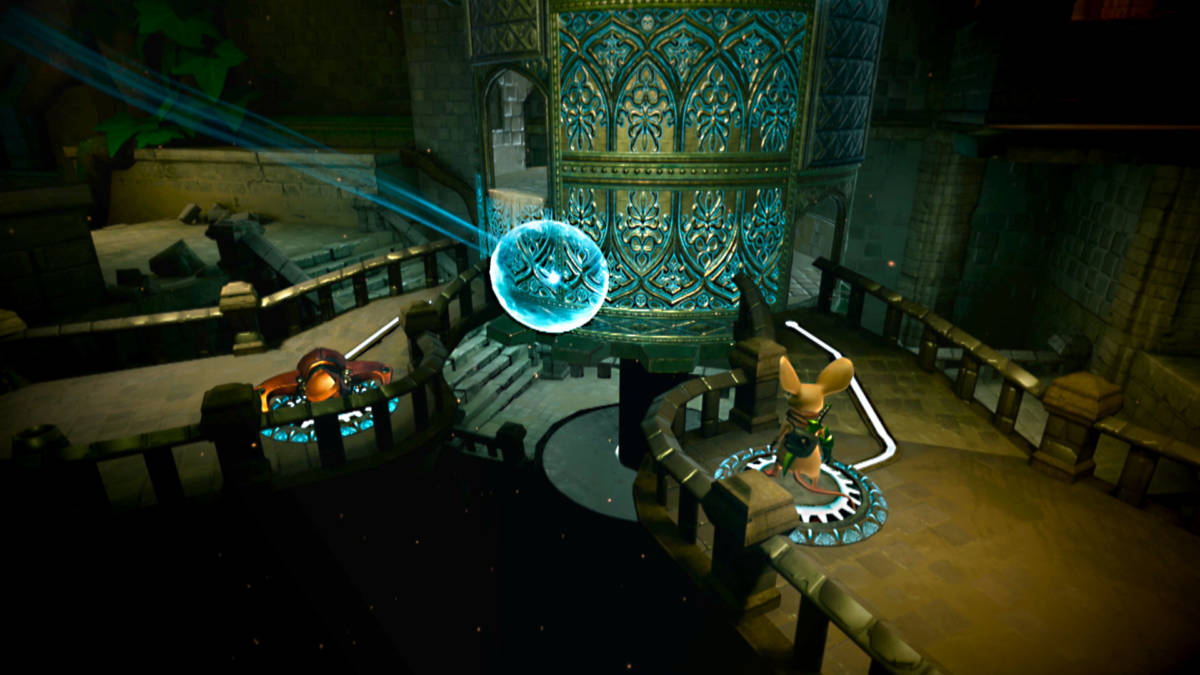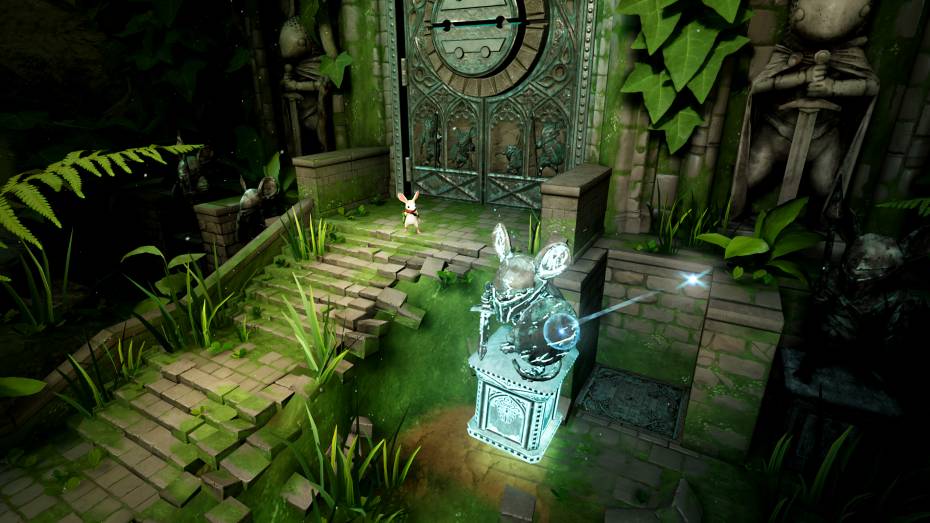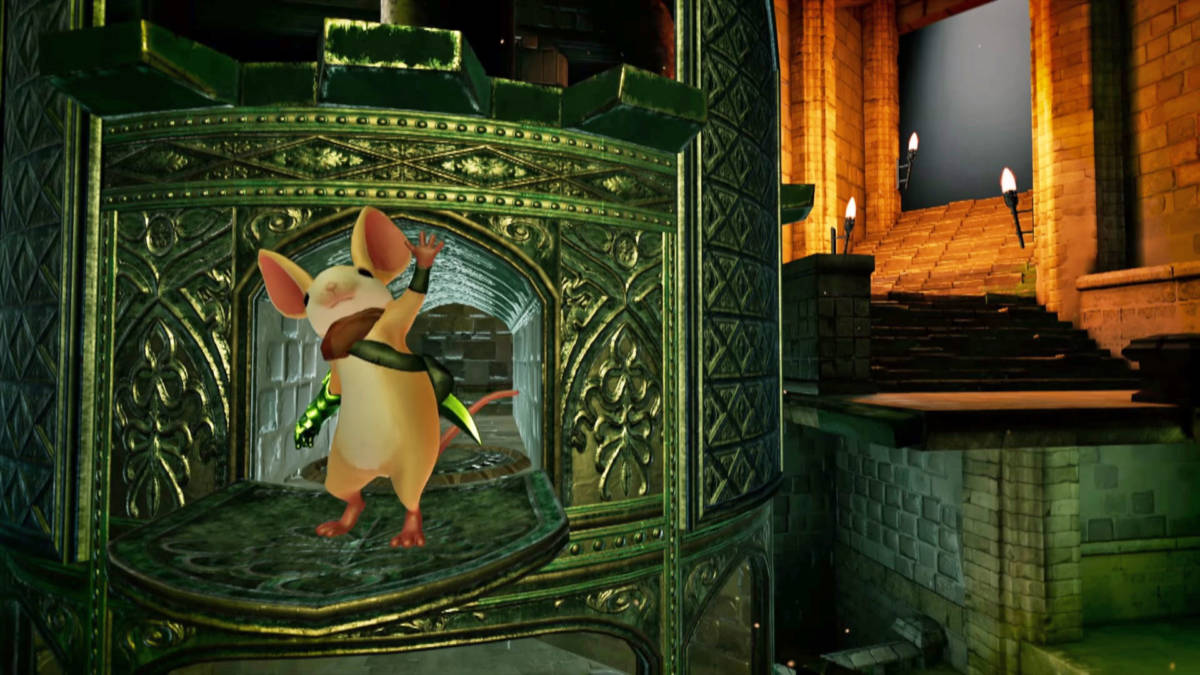Indie platformer Moss could be the game to bridge the gap between VR and traditional gaming. It’s a bold claim right out of the gate, but allow us to explain. VR typically demands that you clear out a decent space so that you can move around and interact with the virtual world.
For some gamers, that’s simply impossible. Not everyone has the living room or bedroom space required to utilise those features, rendering the VR platform, as a whole, useless. Couple that with the left and right hand controllers that require learning an entirely new way to play video games, and you’ve created a platform that has the potential to alienate a large portion of gamers.
Moss, an indie platformer developed by Polyarc and coming to the PS VR this winter, is doing things a little differently. All you need is the PS VR headset, a normal PS4 Dualshock and a comfy place to sit, and you’re ready to whisked off into a world of wonder. Or have digital imagery projected into your eyeballs from a close range, if you wish to be literal.
Moss puts you in control of a little mouse named Quill, who intends on embarking on a heroic journey through the temples of a forgotten civilisation. Also, Quill’s magical world resides in a book and each level is like a new page of that book, hence the book puns.

Instead of using VR to put us in the head of Quill, we’re instead reading the book about her world, giving us the perspective of an unknown entity who can mess around with the objects in this world. We’re an outsider looking in at this magical world inhabited by an adventuring mouse, and it’s up to us to make sure the mouse stays safe.
It’s a puzzle platformer at its simplest, but the experience is aided by both the PS VR headset and the motion control sensors housed within the Dualshock. As you look around each level from your perspective, you can move the controller around to highlight different objects in the environment. Holding one of the triggers will grab the item in question, allowing you to manipulate said item.
The demo we got to grips with gave us the simple stuff like moving and rotating a central platform, but there’s potential there for the system to do a lot more. The fixed perspective camera combined with an ability to mess around with the level could lead to some interesting possibilities.

Still, the system isn’t without drawbacks, which mainly concerned the motion sensing of the controller. For some reason, the game had trouble registering forwards and backwards movement, more so than anything else. It led to one childishly simple puzzle becoming much more frustrating than it should have been.
There is combat in the game, with Quill having to fight some statue scarabs halfway through the demo, but it was so basic that it’s barely worth mentioning. Enemies were dispatched with some skillful use of mashing Square until they fell over. Works like a charm. The demo ends with a sudden encounter with a giant snake, so like the puzzle platforming, there’s potential for more in that regard.
That is the purpose of a demo after all, to give you a taste of what’s to come. In that regard, Moss succeeded, for the most part. Despite some technical issues with the motion controls, Moss appears to be successful fusion of puzzle platforming and VR, which should make it appealing to fans of both.
READ NEXT:
– 50 Best Games of 2017
Some of the coverage you find on Cultured Vultures contains affiliate links, which provide us with small commissions based on purchases made from visiting our site.

